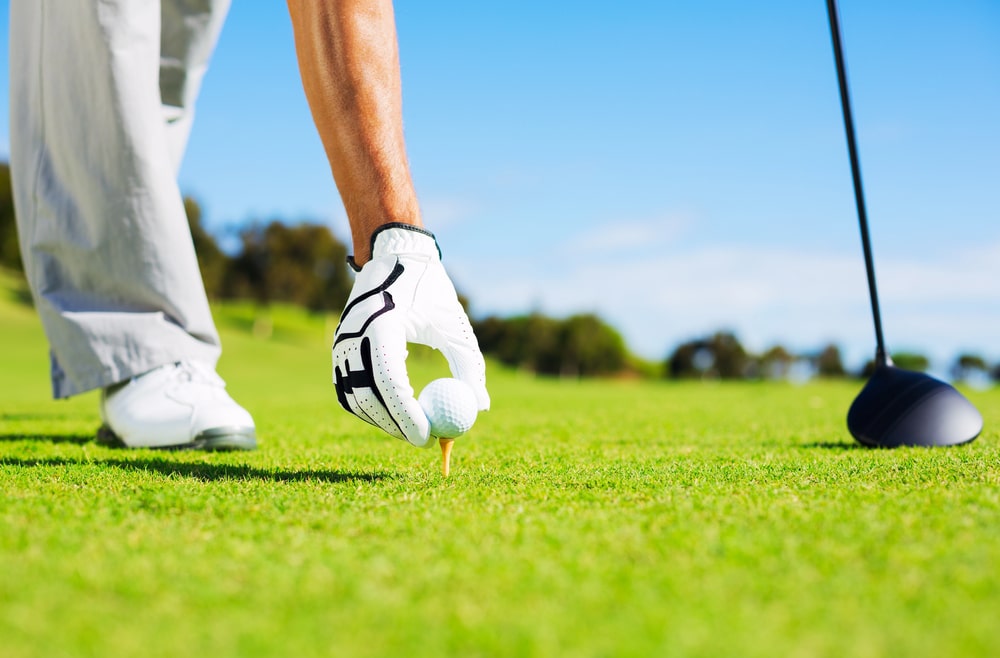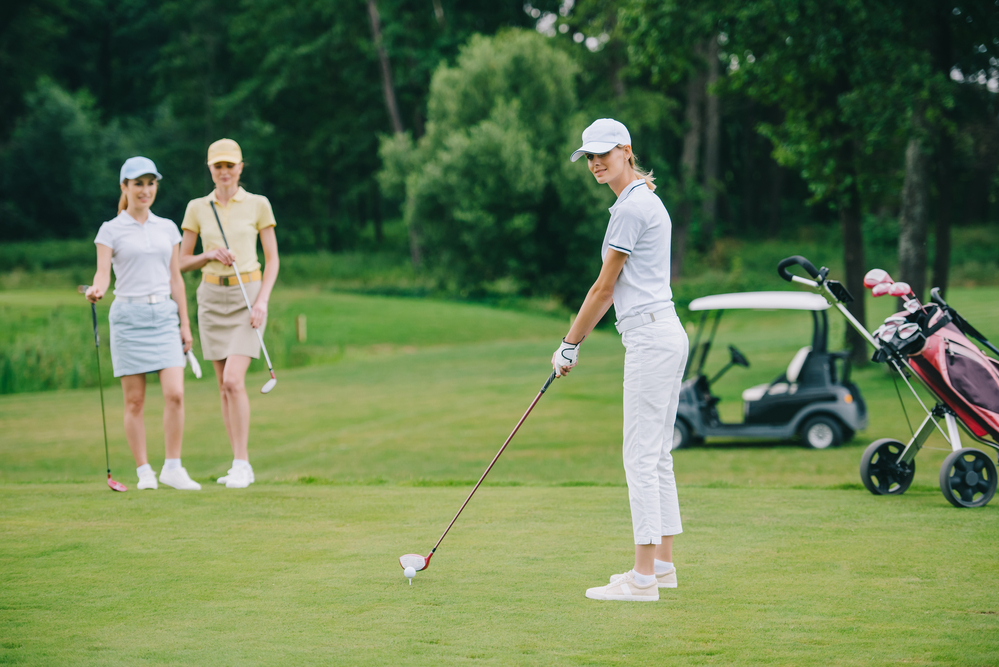
The Awareness Shift: From Judgment to Curiosity
Most golfers judge themselves:
- “I always mess this up.”
- “What is wrong with me?”
- “I should be better by now.”
Judgment closes the mind.
Curiosity opens it.
Curiosity sounds like:
- “That swing came from tension — where did it start?”
- “What emotion was present on that tee?”
- “What thought pulled my focus?”
- Curiosity is the doorway to mastery.
When you stop criticizing and start observing, progress accelerates.
The 3-Step Awareness Method
When pressure builds during a round, it’s easy to get caught up in emotion or self-criticism. The 3-Step Awareness Method is a simple way to reset your mind and body in any moment—before a shot, after a mistake, or even while walking to the next tee.
It helps you notice what’s happening inside, label it clearly, and choose a calmer response that puts you back in control.
Step 1: Notice the Reaction
Start by pausing for a moment. Instead of reacting automatically, turn your attention inward and check in with yourself.
Ask:
- What am I feeling right now?
- Where do I feel it in my body? (jaw, shoulders, grip, breath)
- What thought triggered this reaction?
This brief pause breaks the cycle of tension or frustration. Awareness is the first step toward regaining control.
Step 2: Name It
Once you’ve noticed what’s happening, give it a name. Call it exactly what it is:
- “Pressure”
- “Frustration”
- “Tightness”
- “Self-judgment”
- “Fear of messing up”
When you name it, you separate yourself from it. It becomes something you can observe instead of something that controls you. Naming turns emotion into information.
Step 3: Neutralize and Choose
Now that you’re aware of what’s going on, it’s time to reset.
Take a slow, deep breath. Let your body soften—relax your jaw, loosen your shoulders, ease your hands. Then choose your next thought with intention:
- “New moment.”
- “Calm body, calm swing.”
- “I choose confidence.”
Each phrase helps you clear away the last shot and step into the next one fresh and focused. You’re not ignoring your emotions; you’re choosing how to respond to them.
Awareness → Neutrality → Choice
That’s what emotional discipline looks like in motion. It’s not about blocking feelings out, but about staying aware enough to guide them. When you do that, you play with clarity, confidence, and presence—one shot at a time.
The Trigger Library: Know Your Patterns
Every golfer has certain moments that spark tension or frustration. These are your triggers—the situations that pull you out of focus and into emotion.
The key is to know them before they happen so you can handle them with awareness instead of reaction.
Think about which ones apply to you.
Performance Triggers
- Short putts
- Narrow tee shots
- Playing with better golfers
- Being under par late in the round
Pace Triggers
- Slow groups
- Waiting on the tee
- Feeling rushed
Expectation Triggers
- “I should hit this perfectly.”
- “This is an easy hole.”
- “Don’t mess this up.”
Expectation often fuels emotion. When you expect perfection, even small mistakes can feel bigger than they are.
Awareness is what breaks that pattern. When you recognize your triggers, you don’t have to fall into them. You can prepare, breathe, and respond with intention instead of frustration.
Knowing your triggers is like having a mental map of your round. The more familiar you are with it, the easier it is to stay calm, composed, and confident no matter what comes your way.
A Simple On-Course Awareness Drill
3-Shot Reflection Exercise
For your next round, every three shots:
Ask yourself:
- What emotion am I playing from?
- What is my body doing? (tight? loose? relaxed?)
- Where is my attention — past, future, or present?
Then reset:
- Breath
- Soft shoulders
- Anchor word (Calm. Trust. Smooth. Steady.)
- Gentle smile — yes, smiling changes chemistry
You will be amazed how quickly your state shifts.
Why Self-Awareness Improves Scores
When you manage your reactions:
- Tempo smooths
- Decision-making improves
- Distance control increases
- Short-game touch sharpens
- Mistakes don’t snowball
- Confidence holds steady
Self-awareness is not “mental fluff.”
It is performance fuel.
Bring the Lesson Into Life
Golf teaches you how you respond when:
- Pressure rises
- Expectations weigh on you
- Mistakes happen
- You want to be perfect
- You feel behind
And it teaches you how to change your response.
Self-awareness on the course builds:
- Resilience
- Emotional intelligence
- Patience
- Confidence
- Self-belief
Golf isn’t just a sport — it’s personal leadership training.
Awareness Creates Advantage
- Every shot gives you feedback.
- Every reaction teaches you something.
- Every moment offers a chance to reset.
The best players don’t avoid emotion. They simply recognize it faster and redirect it more effectively.
Your physical skill builds your swing, but self-awareness keeps that swing available when it matters most.
Breathe. Notice. Choose.
That’s how confident, composed, and joyful golfers are made.
If you’re ready to strengthen your mental game and play with more calm and consistency, join the Golf Positive! mindset journey. It’s about building the inner strength that leads to better golf and a better experience on the course.



